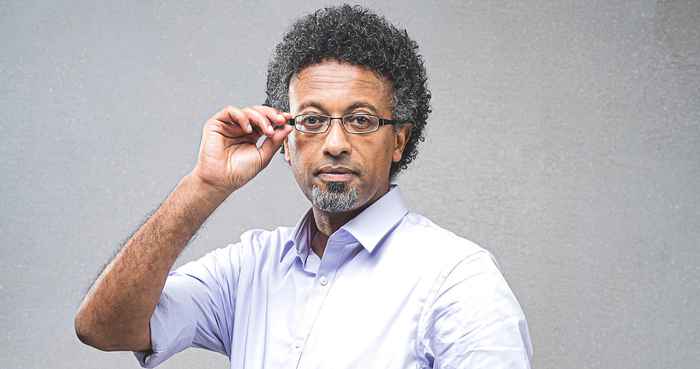Socially Intelligent Artificial Systems (SIAS) group
Advancing society through inclusive AI technology
AI should be working for people, instead of people working for AI.Sennay Ghebreab, chair of the group

Research
The Socially Intelligent Artificial Systems (SIAS) group is part of the Informatics Institute at the University of Amsterdam. The group focuses on civic-centered and community-minded artificial intelligence (AI) that aims to reduce inequality and promote equal opportunity in society.
SIAS arose out of the concern that AI is increasing inequality in society. If we do not intervene, there is a strong likelihood that the gap between the poor and the rich will widen and deepen. The predominant question the group tries to answer: How can we use AI, and in particular learning systems, to advance society? And how can we do that in such a way that people from all corners of society benefit from it?
For its research projects SIAS uses data from municipalities and ministries to uncover inequalities in the city of Amsterdam and society in general. They do this in the social domains of education, well-being, mobility, environment and health. One project for example focuses on mobility poverty. Some groups in the city do not have the same opportunity to move throughout public spaces as others do. Throughout all of this the central question is how and where inequality arises, and what we can do to correct this?
And together with the GGD (Municipal Health Services), the group conducts research into child obesity. Children in families with a lower socioeconomic status and families with a non-Western or a migration background suffer more from obesity than others. How can AI be used to come up with new interventions and strategies? One of the education projects focuses on the increasing inequality in schools in the Netherlands. How can government and municipal school funding be distributed in such a way that all children benefit from it in equitable ways?
Facts & figures
SIAS is unique in the sense that it operates at the crossroad of two big transformations in society: diversification and digitization. Society is demographically changing rapidly and is becoming increasingly technologically complex. SIAS is one of the few research groups working on this intersection. The group merges the social and the technical aspect in a way that benefits the social.
In order to develop socially intelligent AI, it is necessary to do research at the whole spectrum of theoretical, fundamental and practical research. SIAS covers all these aspects. PhD students and post-docs come from different parts of the world and have a great motivation to use their AI knowledge for social good. The group thinks out of the box and into future.
The SIAS group is made possible with the support of the City of Amsterdam and the Ministry of Interior Affairs. Despite the interest around AI in the public sector, finding funding for their research remains a challenge. As part of academic outreach SIAS actively communicates with other Ministries, municipalities, and NGO's to collaborate and co-create. Given the growing societal relevance, the SIAS group has ambitious plans for expansion.
Partnership & collaborations
SIAS is engaged in a long-term partnership with Vrije Universiteit Amsterdam, the City of Amsterdam and the Dutch Ministry of Interior Affairs in the Civic AI Lab. This lab is part of ICAI, the Dutch national AI network that stimulates AI technology and talent development between academia, industry and government.
One example of collaboration between SIAS and the City of Amsterdam is the development of an accessible AI-tool for civil servant that detects unwanted social outcomes in AI -systems. In particular, SIAS does research on the school allocation algorithm utilized in Amsterdam, to ensure that these applications do not discriminate based on the social background of people. The goal is to aid policy makers in understanding how algorithmic decisions can create unwanted outcomes such as social discrimination and inequality.
Future mission
Recently a diverse group of scientist conducted research into the impacts of AI on the sustainable development goals (SDG’s), set by the United Nations in 2015. According to this study, AI has a positive impact on most of the SDG’s, but has a negative impact too, in particular on SDG 10 (reducing inequality). SIAS’s future goal is to use AI to help advance SDG 10. In order to do this, they will build AI systems that understand, value and build on differences between people in terms of socio-cultural values, knowledge, skills and lifestyle. The group does not focus on one-size-fits-all algorithms, but on algorithms that know the different citizens and communities.
A big point of focus is how to involve citizens and communities in the ongoing datafication and digitization of society. This is a challenge because citizens are reluctant to just give away their data, out of fear of data abuse, privacy invasion and loss of agency. SIAS will explore ways to engage citizens in data collection, algorithm development and technology assessment in ways that benefit and empower citizens and communities, rather than third parties.
SIAS positions itself primarily in the research theme People, Society & Technology with clear links to AI, Computational Science, Data Science, Systems & Networking.